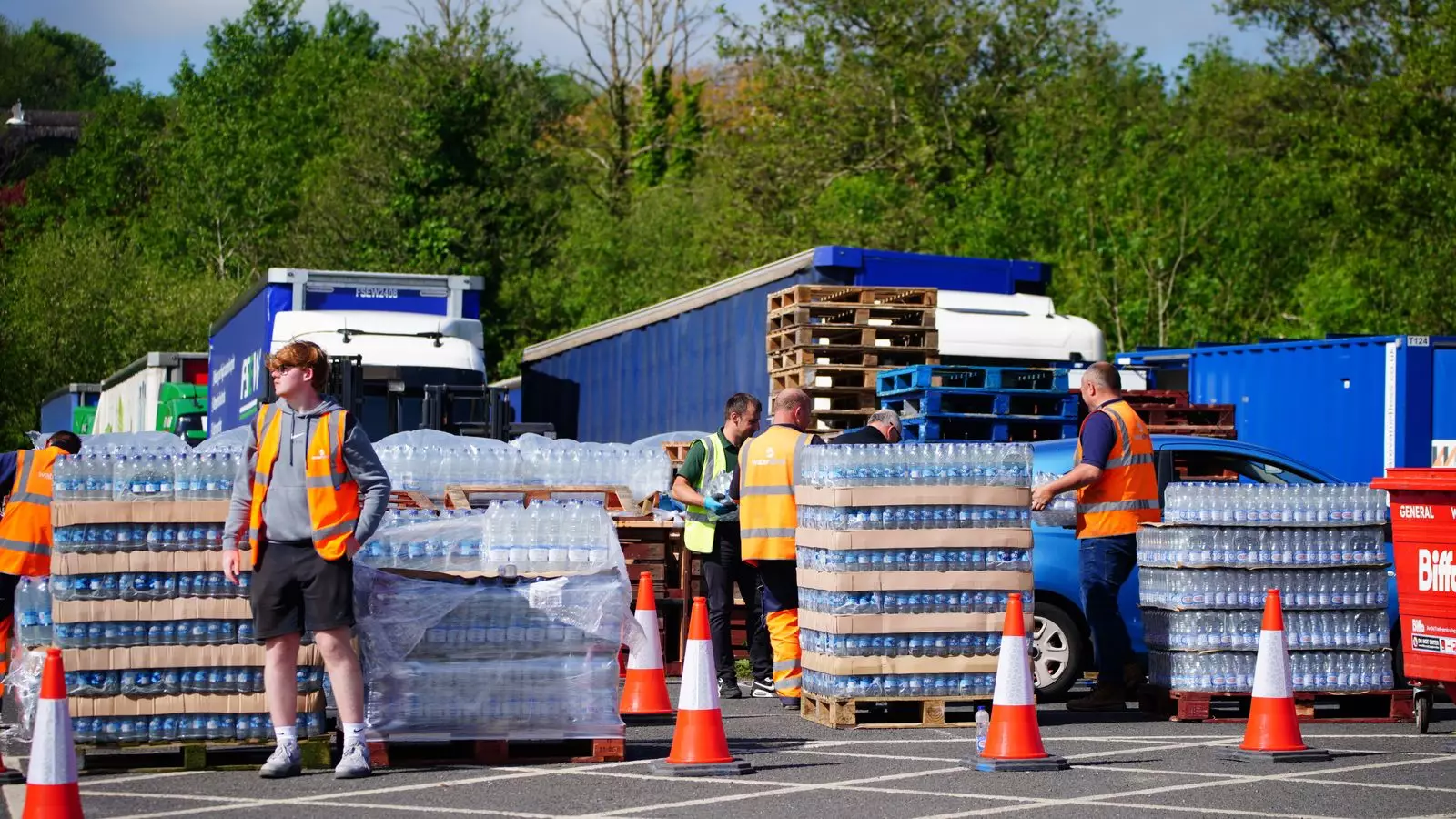Kayley Lewis and her children’s unfortunate experience with tap water contamination highlights the serious health risks associated with waterborne parasites like cryptosporidium. The symptoms of diarrhoea, vomiting, and stomach cramps are not only physically debilitating but also emotionally distressing. The loss of trust in South West Water is palpable as Ms Lewis expresses her reluctance to ever drink tap water again. The fear and trauma caused by this incident are likely to have a lasting impact on the affected individuals and the broader community.
With 46 confirmed cases of the disease and numerous others under investigation, the UK Health Security Agency has been actively involved in managing the outbreak. South West Water has been working tirelessly to rectify the situation and restore safe water access to households. The imposition of boil water notices and the subsequent restrictions on water usage indicate the severity of the contamination issue. The diligence shown by water authorities is commendable, but the damage caused by the crisis cannot be overstated.
The economic implications of tap water contamination are evident in the losses incurred by businesses like the Station Guest House B&B. Steve Price’s candid account of the financial impact on his establishment underscores the ripple effects of the crisis. Tourism-dependent towns like Brixham are experiencing a significant downturn in visitor activity, resulting in substantial revenue losses for local enterprises. The sense of desolation and abandonment described by Sally Tollon paints a stark picture of the adversity faced by the community in the wake of the contamination.
The fallout from the tap water contamination extends beyond immediate health concerns and economic setbacks. The psychological toll of losing faith in a fundamental resource like water is profound. The restoration of trust in South West Water will require transparent communication, robust safety measures, and tangible efforts to prevent future incidents. Rebuilding the community’s confidence in the water supply will be a gradual process that necessitates empathy, accountability, and continuous monitoring of water quality standards.
The crisis caused by tap water contamination serves as a sobering reminder of the fragility of essential services and the imperative of safeguarding public health. The need for stringent water quality controls, prompt response mechanisms, and community resilience measures is underscored by this incident. As affected individuals and businesses strive to recover from the repercussions of the contamination, there is a collective opportunity to learn from the crisis and implement proactive measures to prevent similar occurrences in the future. The enduring resilience of communities in overcoming adversity is a testament to the human capacity for adaptation and renewal.


Leave a Reply